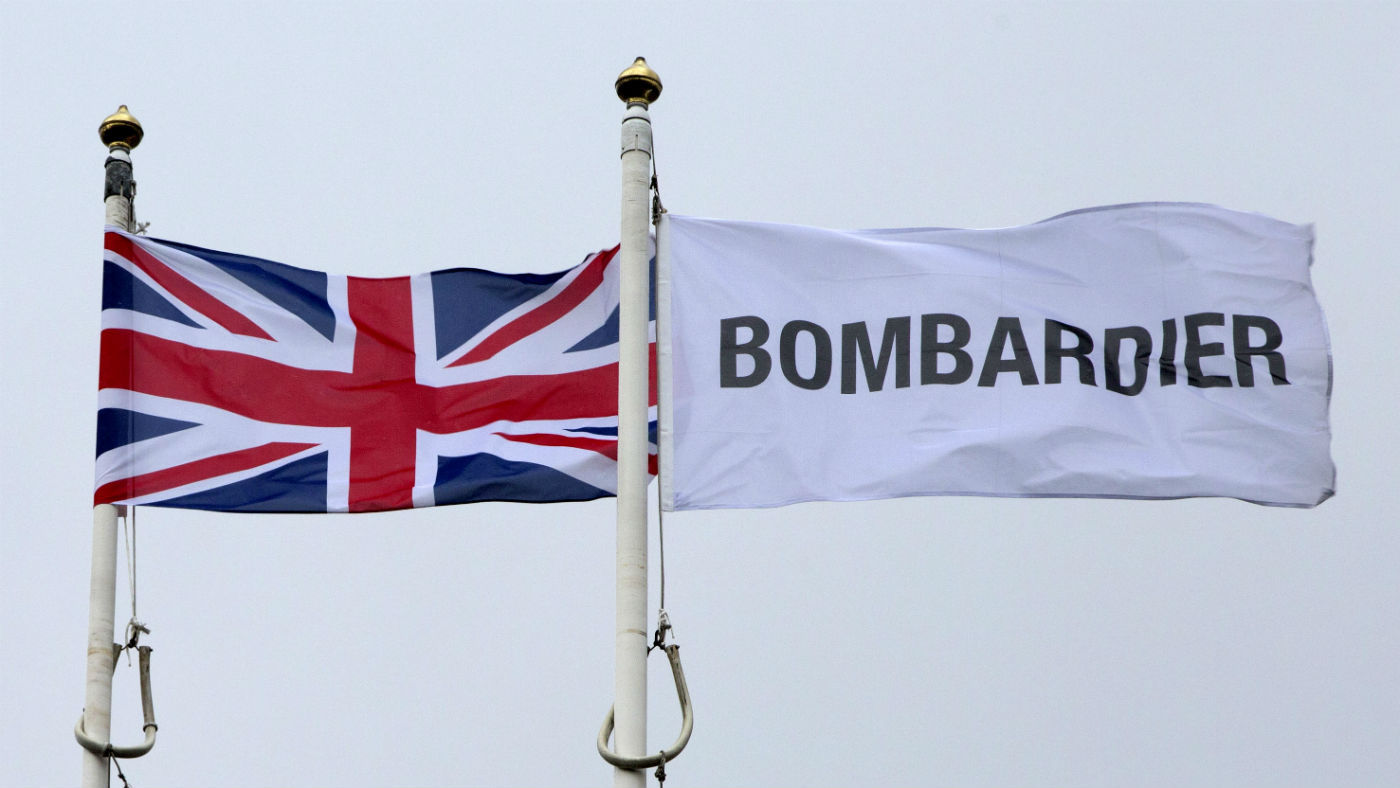US imposes 300% import tariff on Bombardier
Chamber of Commerce rules in favour of Boeing over claims of illegal state subsidies

A free daily email with the biggest news stories of the day – and the best features from TheWeek.com
You are now subscribed
Your newsletter sign-up was successful
The US Chamber of Commerce has rejected an appeal against the huge tariffs it has imposed on Bombardier in favour of rival aerospace firm Boeing.
A further tariff of 80% was imposed on the import of Bombardier’s C-Series, adding to the 220% rate already introduced by Congress. Boeing has claimed that Bombardier benefited from illegal state subsidies from Canada and the UK and dumped the planes at “absurdly low” prices.
The imposition of massive tariffs on US imports threatens Bombardier jobs in Northern Ireland: 4,000 are directly linked to the construction of the C-Series.
The Week
Escape your echo chamber. Get the facts behind the news, plus analysis from multiple perspectives.

Sign up for The Week's Free Newsletters
From our morning news briefing to a weekly Good News Newsletter, get the best of The Week delivered directly to your inbox.
From our morning news briefing to a weekly Good News Newsletter, get the best of The Week delivered directly to your inbox.
The BBC says the programme is also important to 15 smaller aerospace firms in Northern Ireland and, by more than tripling the cost of a C-Series aircraft sold in the US, could “also jeopardise a major order placed last year from US airline Delta”.
Reacting to the Chamber of Commerce decision, a spokesperson for Bombardier said the ruling represented an “egregious overreach and misapplication of US trade laws”.
“This hypocrisy is appalling” the spokesperson added, “and it should be deeply troubling to any importer of large, complex, and highly engineered products.”
The row between Boeing and Bombardier comes just as the UK is looking to negotiate a number of major international trade deals.
A free daily email with the biggest news stories of the day – and the best features from TheWeek.com
Theresa May described the original decision to impose US tariffs as “hugely disappointing”. It underscores the “defensive trade policy” of President Donald Trump as he looks to prioritise US companies as part of his America First economic strategy, says Reuters.
Both Britain and Canada have threatened to cancel contracts with Boeing and avoid buying military equipment but it is unclear how they will react to the latest round of trade tariffs.
A final ruling on the case is expected early next year.
-
 Local elections 2026: where are they and who is expected to win?
Local elections 2026: where are they and who is expected to win?The Explainer Labour is braced for heavy losses and U-turn on postponing some council elections hasn’t helped the party’s prospects
-
 6 of the world’s most accessible destinations
6 of the world’s most accessible destinationsThe Week Recommends Experience all of Berlin, Singapore and Sydney
-
 How the FCC’s ‘equal time’ rule works
How the FCC’s ‘equal time’ rule worksIn the Spotlight The law is at the heart of the Colbert-CBS conflict
-
 Currencies: Why Trump wants a weak dollar
Currencies: Why Trump wants a weak dollarFeature The dollar has fallen 12% since Trump took office
-
 TikTok: New owners, same risks
TikTok: New owners, same risksFeature What are Larry Ellison’s plans for TikTok US?
-
 Trump wants a weaker dollar, but economists aren’t so sure
Trump wants a weaker dollar, but economists aren’t so sureTalking Points A weaker dollar can make imports more expensive but also boost gold
-
 Leadership: A conspicuous silence from CEOs
Leadership: A conspicuous silence from CEOsFeature CEOs were more vocal during Trump’s first term
-
 The end for central bank independence?
The end for central bank independence?The Explainer Trump’s war on the US Federal Reserve comes at a moment of global weakening in central bank authority
-
 Can Trump make single-family homes affordable by banning big investors?
Can Trump make single-family homes affordable by banning big investors?Talking Points Wall Street takes the blame
-
 How will China’s $1 trillion trade surplus change the world economy?
How will China’s $1 trillion trade surplus change the world economy?Today’s Big Question Europe may impose its own tariffs
-
 Phish food for thought: Ben & Jerry’s political turmoil
Phish food for thought: Ben & Jerry’s political turmoilIn the Spotlight War of words over brand activism threatens to ‘overshadow’ the big ice cream deal